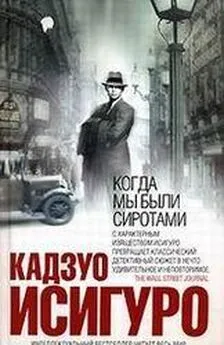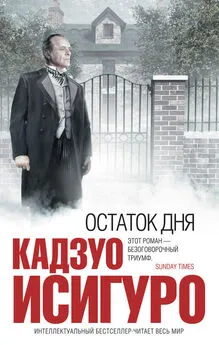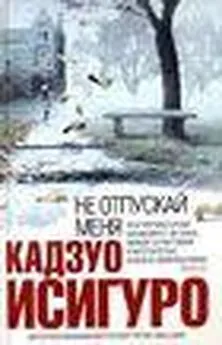Кадзуо Исигуро - Остаток дня / The Remains of the Day
- Название:Остаток дня / The Remains of the Day
- Автор:
- Жанр:
- Издательство:неизвестно
- Год:2020
- Город:Москва
- ISBN:978-5-04-112761-9
- Рейтинг:
- Избранное:Добавить в избранное
-
Отзывы:
-
Ваша оценка:
Кадзуо Исигуро - Остаток дня / The Remains of the Day краткое содержание
«Остаток дня» – дневник дворецкого, жизнь с точки зрения Бэрримора. В основе его стилистики лежит сдержанность, выявляющая себя в самой механике речи. Герой не считает возможным проявлять свои чувства, и на лингвистическом уровне эта своеобразная аскеза приводит к замечательным результатам – перед нами этакая оборотная сторона Достоевского с его неуправляемым потоком эмоций.
В 1989 году за «Остаток дня» Исигуро единогласно получил Букера (и это было, пожалуй, единственное решение Букеровского комитета за всю историю премии, ни у кого не вызвавшее протеста). Одноименная экранизация Джеймса Айвори с Энтони Хопкинсом в главной роли пользовалась большим успехом.
А Борис Акунин написал своего рода римейк «Остатка дня» – роман «Коронация».
В формате a4-pdf сохранен издательский макет книги.
Остаток дня / The Remains of the Day - читать онлайн бесплатно ознакомительный отрывок
Интервал:
Закладка:
‘I’ve been up for the past three hours,’ he said, looking me up and down rather coldly.
‘I hope Father is not being kept awake by his arthritic troubles.’
‘I get all the sleep I need.’
My father reached forward to the only chair in the room, a small wooden one, and placing both hands on its back, brought himself to his feet. When I saw him stood upright before me, I could not be sure to what extent he was hunched over due to infirmity and what extent due to the habit of accommodating the steeply sloped ceilings of the room.
‘I have come here to relate something to you, Father.’
Then relate it briefly and concisely. I haven’t all morning to listen to you chatter.’
‘In that case. Father, I will come straight to the point.’
‘Come to the point then and be done with it. Some of us have work to be getting on with.’
Very well. Since you wish me to be brief, I will do my best to comply. The fact is, Father has become increasingly infirm. So much so that even the duties of an under-butler are now beyond his capabilities. His lordship is of the view, as indeed I am myself, that while Father is allowed to continue with his present round of duties, he represents an ever-present threat to the smooth running of this household, and in particular to next week’s important international gathering.’
My father’s face, in the half-light, betrayed no emotion whatsoever.
‘Principally,’ I continued, ‘it has been felt that Father should no longer be asked to wait at table, whether or not guests are present.’
‘I have waited at table every day for the last fifty-four years,’ my father remarked, his voice perfectly unhurried.
‘Furthermore, it has been decided that Father should not carry laden trays of any sort for even the shortest distances. In view of these limitations, and knowing Father’s esteem for conciseness, I have listed here the revised round of duties he will from now on be expected to perform.’
I felt disinclined actually to hand to him the piece of paper I was holding, and so put it down on the end of his bed. My father glanced at it then returned his gaze to me. There was still no trace of emotion discernible in his expression, and his hands on the back of the chair appeared perfectly relaxed. Hunched over or not, it was impossible not to be reminded of the sheer impact of his physical presence – the very same that had once reduced two drunken gentlemen to sobriety in the back of a car. Eventually, he said:
‘I only fell that time because of those steps. They’re crooked. Seamus should be told to put those right before someone else does the same thing.’
‘Indeed. In any case, may I be assured Father will study that sheet?’
‘Seamus should be told to put those steps right. Certainly before these gentlemen start arriving from Europe.’
‘Indeed. Well, Father, good morning.’
That summer evening referred to by Miss Kenton in her letter came very soon after that encounter – indeed, it may have been the evening of that same day. I cannot remember just what purpose had taken me up on to the top floor of the house to where the row of guest bedrooms line the corridor. But as I think I have said already, I can recall vividly the way the last of the daylight was coming through each open doorway and falling across the corridor in orange shafts. And as I walked on past those unused bedrooms, Miss Kenton’s figure, a silhouette against a window within one of them, had called to me.
When one thinks about it, when one remembers the way Miss Kenton had repeatedly spoken to me of my father during those early days of her time at Darlington Hall, it is little wonder that the memory of that evening should have stayed with her all of these years. No doubt, she was feeling a certain sense of guilt as the two of us watched from our window my father’s figure down below. The shadows of the poplar trees had fallen across much of the lawn, but the sun was still lighting up the far corner where the grass sloped up to the summerhouse. My father could be seen standing by those four stone steps, deep in thought. A breeze was slightly disturbing his hair. Then, as we watched, he walked very slowly up the steps. At the top, he turned and came back down, a little faster. Turning once more, my father became still again for several seconds, contemplating the steps before him. Eventually, he climbed them a second time, very deliberately. This time he continued on across the grass until he had almost reached the summerhouse, then turned and came walking slowly back, his eyes never leaving the ground. In fact, I can describe his manner at that moment no better than the way Miss Kenton puts it in her letter; it was indeed ‘as though he hoped to find some precious jewel he had dropped there’.
But I see I am becoming preoccupied with these memories and this is perhaps a little foolish. This present trip represents, after all, a rare opportunity for me to savour to the full the many splendours of the English countryside, and I know I shall greatly regret it later if I allow myself to become unduly diverted. In fact, I notice I have yet to record here anything of my journey to this city – aside from mentioning briefly that halt on the hillside road at the very start of it. This is an omission indeed, given how much I enjoyed yesterday’s motoring.
I had planned the journey here to Salisbury with considerable care, avoiding almost entirely the major roads; the route might have seemed unnecessarily circuitous to some, but then it was one that enabled me to take in a fair number of the sights recommended by Mrs J. Symons in her excellent volumes, and I must say I was well pleased with it. For much of the time it took me through farmland, amidst the pleasant aroma of meadows, and often I found myself slowing the Ford to a crawl to better appreciate a stream or a valley I was passing. But as I recall, I did not actually disembark again until I was quite near Salisbury.
On that occasion, I was moving down a long, straight road with wide meadows on either side of me. In fact, the land had become very open and flat at that point, enabling one to see a considerable distance in all directions, and the spire of Salisbury Cathedral had become visible on the skyline up ahead. A tranquil mood had come over me, and for this reason I believe I was again motoring very slowly – probably at no more than fifteen miles per hour. This was just as well, for I saw only just in time a hen crossing my path in the most leisurely manner. I brought the Ford to a halt only a foot or two from the fowl, which in turn ceased its journey, pausing there in the road in front of me. When after a moment it had not moved, I resorted to the car horn, but this had no effect other than to make the creature commence pecking at something on the ground. Rather exasperated, I began to get out and had one foot still on the running board when I heard a woman’s voice calclass=”underline”
‘Oh, I do beg your pardon, sir.’
Glancing round, I saw I had just passed on the roadside a farm cottage – from which a young woman in an apron, her attention no doubt aroused by the horn, had come running. Passing me, she swooped up the hen in her arms and proceeded to cradle it as she apologized to me again. When I assured her no harm had been done, she said:
‘I do thank you for stopping and not running poor Nellie over. She’s a good girl, provides us with the largest eggs you’ve ever seen. It’s so good of you to stop. And you were probably in a hurry too.’
‘Oh, I’m not in a hurry at all,’ I said with a smile. ‘For the first time in many a year, I’m able to take my time and I must say, it’s rather an enjoyable experience. I’m just motoring for the pleasure of it, you see.’
‘Oh, that’s nice, sir. And you’re on your way to Salisbury, I expect.’
‘I am indeed. In fact, that’s the cathedral we can see over there, isn’t it? I’m told it’s a splendid building.’
‘Oh, it is, sir, it’s very nice. Well, to tell you the truth, I hardly go into Salisbury myself, so I couldn’t really say what it’s like at close quarters. But I tell you, sir, day in day out we have a view of the steeple from here. Some days, it’s too misty and it’s like it’s vanished altogether. But you can see for yourself, on a fine day like this, it’s a nice sight.’
‘Delightful.’
‘I’m so grateful you didn’t run over our Nellie, sir. Three years ago a tortoise of ours got killed like that and on just about this very spot. We were all very upset over that.’
‘How very tragic,’ I said, sombrely.
‘Oh, it was, sir. Some people say we farm people get used to animals being hurt or killed, but that’s just not true. My little boy cried for days. It’s so good you stopped for Nellie, sir. If you’d care to come in for a cup of tea, now that you’ve got out and everything, you’d be most welcome. It would set you on your way.’
‘That’s most kind, but really, I feel I should continue. I’d like to reach Salisbury in good time to take a look at the city’s many charms.’
‘Indeed, sir. Well, thank you again.’
I set off again, maintaining for some reason – perhaps because I expected further farm creatures to wander across my path – my slow speed of before. I must say, something about this small encounter had put me in very good spirits; the simple kindness I had been thanked for, and the simple kindness I had been offered in return, caused me somehow to feel exceedingly uplifted about the whole enterprise facing me over these coming days. It was in such a mood, then, that I proceeded here to Salisbury.
But I feel I should return just a moment to the matter of my father; for it strikes me I may have given the impression earlier that I treated him rather bluntly over his declining abilities. The fact is, there was little choice but to approach the matter as I did – as I am sure you will agree once I have explained the full context of those days. That is to say, the important international conference to take place at Darlington Hall was by then looming ahead of us, leaving little room for indulgence or ‘beating about the bush’. It is important to be reminded, moreover, that although Darlington Hall was to witness many more events of equal gravity over the fifteen or so years that followed, that conference of March 1923 was the first of them; one was, one supposes, relatively inexperienced, and inclined to leave little to chance. In fact, I often look back to that conference and, for more than one reason, regard it as a turning point in my life. For one thing, I suppose I do regard it as the moment in my career when I truly came of age as a butler. That is not to say I consider I became, necessarily, a ‘great’ butler; it is hardly for me, in any case, to make judgements of this sort. But should it be that anyone ever wished to posit that I have attained at least a little of that crucial quality of ‘dignity’ in the course of my career, such a person may wish to be directed towards that conference of March 1923 as representing the moment when I first demonstrated I might have a capacity for such a quality. It was one of those events which at a crucial stage in one’s development arrive to challenge and stretch one to the limit of one’s ability and beyond, so that thereafter one has new standards by which to judge oneself. That conference was also memorable, of course, for other quite separate reasons, as I would like now to explain.
The conference of 1923 was the culmination of long planning on the part of Lord Darlington; indeed, in retrospect, one can see clearly how his lordship had been moving towards this point from some three years or so before. As I recall, he had not been initially so preoccupied with the peace treaty when it was drawn up at the end of the Great War, and I think it is fair to say that his interest was prompted not so much by an analysis of the treaty, but by his friendship with Herr Karl-Heinz Bremann.
Читать дальшеИнтервал:
Закладка:
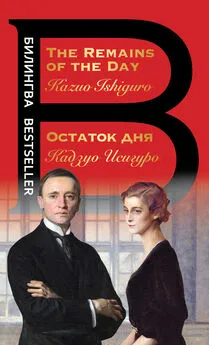
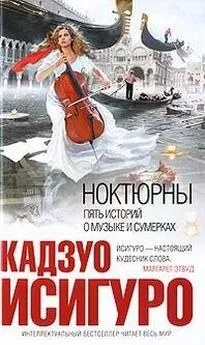
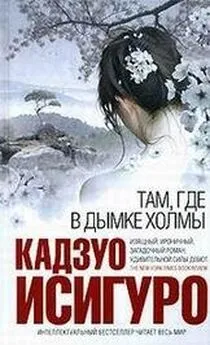
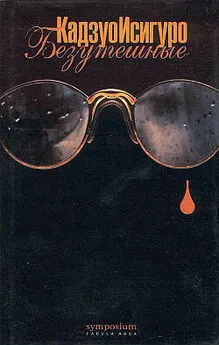

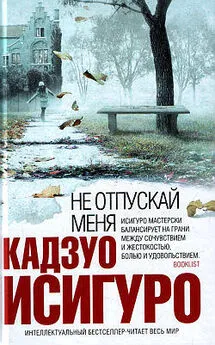
![Кадзуо Исигуро - Не отпускай меня [litres]](/books/1095846/kadzuo-isiguro-ne-otpuskaj-menya-litres.webp)
